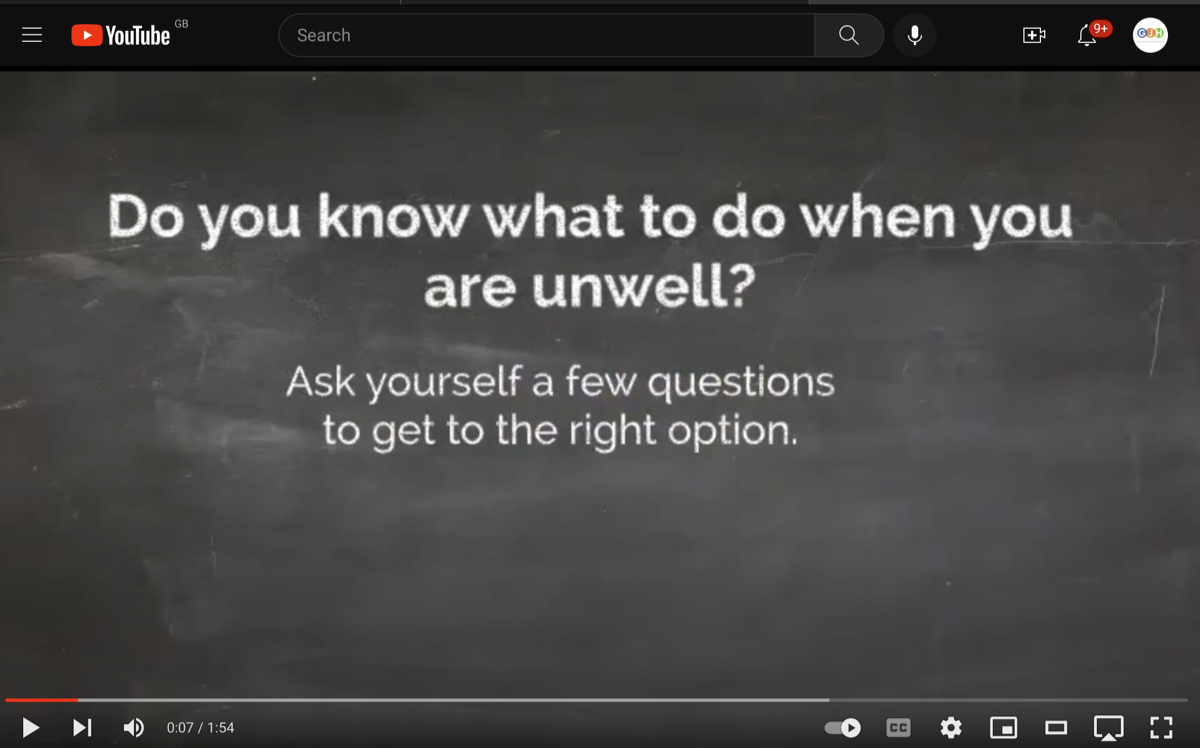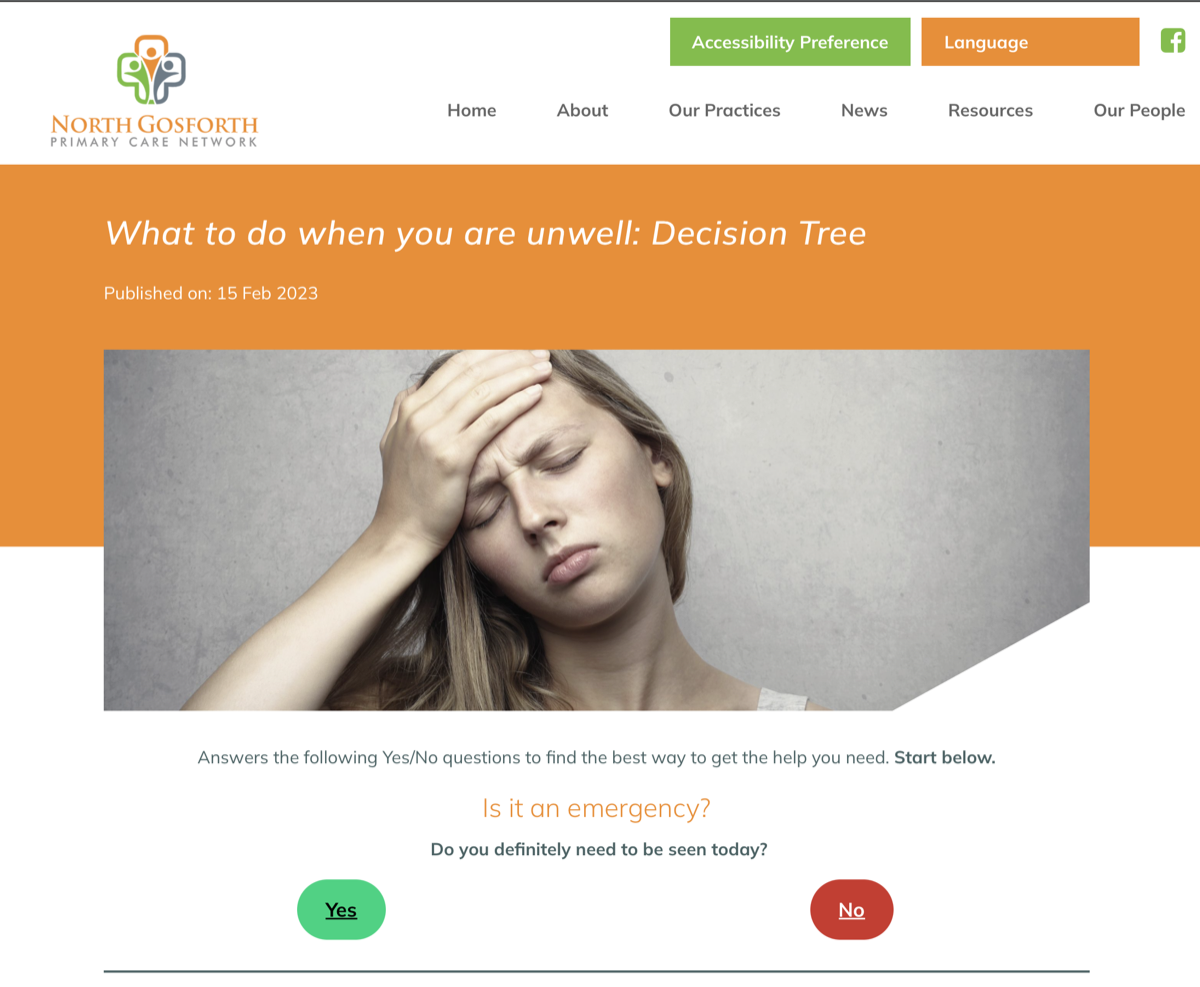Do you know what to do when you are unwell?
It’s not always easy to know what to do when we are unwell.
We’ve put together a video guide and interactive decision tree to show that by answering some simple questions, you can get to the help you need quickly.
Watch the video guide, try the decision tree by clicking the options, or read in more detail below.


Urgency and Severity
The first question is about urgency – is the situation an emergency?
By emergency, we mean an acute medical issue that needs attention as soon as possible. This could be a sudden, intense pain, worrying rashes, or trouble breathing.
If the answer is Yes, the next question is about severity. Is emergency treatment needed to prevent death, severe or permanent injury?
Examples would be crushing chest pain with nausea or dizziness, breathing trouble, and coughing up blood, fever and delirium or a suspected stroke with a drooping face and weakness on one side of the body.
If this is yes, you should call 999 or immediately go to Accident and Emergency.
If the answer is no, the situation is not life-threatening, then you should call NHS 111.
Trained staff can advise on fevers and infections and get you to the best service to help.
Self-Care Options
Going back to the original question of urgency, if you don’t need to be seen today, the next question is whether you can self-care?
Mild conditions like a sore-throat, hangover or cold can usually be treated at home with advice or over the counter medication.
The next step is to either visit 111.NHS.uk or your local pharmacist. In both cases, you will be asked about your symptoms and advised on what is best to do.
NHS 111 operate 24 hours a day, seven days a week, both on the phone and online. You can find your nearest pharmacist through the NHS website, and you don’t need an appointment.
Think about time
If self-care isn’t possible, then the following two options are dependent on what time and day it is.
If we are open, we should be your first option. You can contact us online, call or visit. You can see our regular opening times and any planned closures here.
Please be prepared to give our staff as much information as possible when contacting the practice.
Anything you say is confidential, and our team are trained to know what option will be best for you. We offer face-to-face and remote consultations with our clinicians.
If we are not open, then you should contact NHS 111. As with contacting us, you will be asked about your issue and the more information you can share, the easier it will be to give you the right advice.
You may be offered an appointment at an urgent treatment centre or other NHS location.
